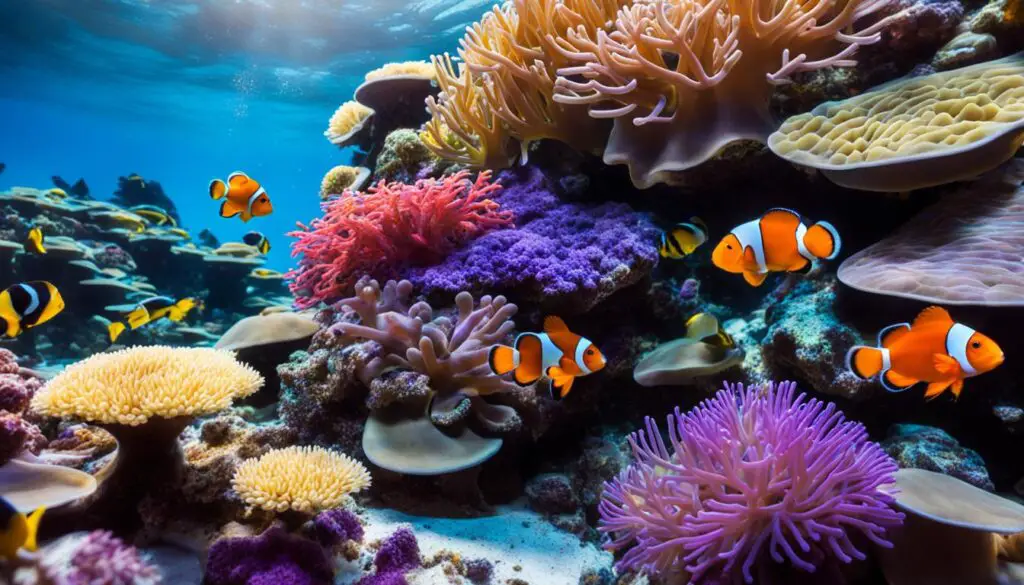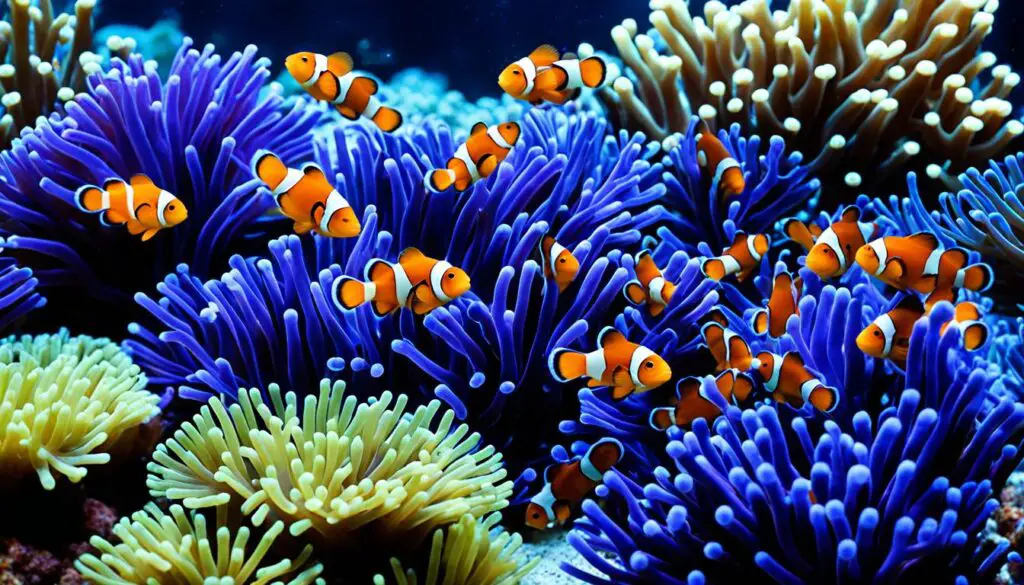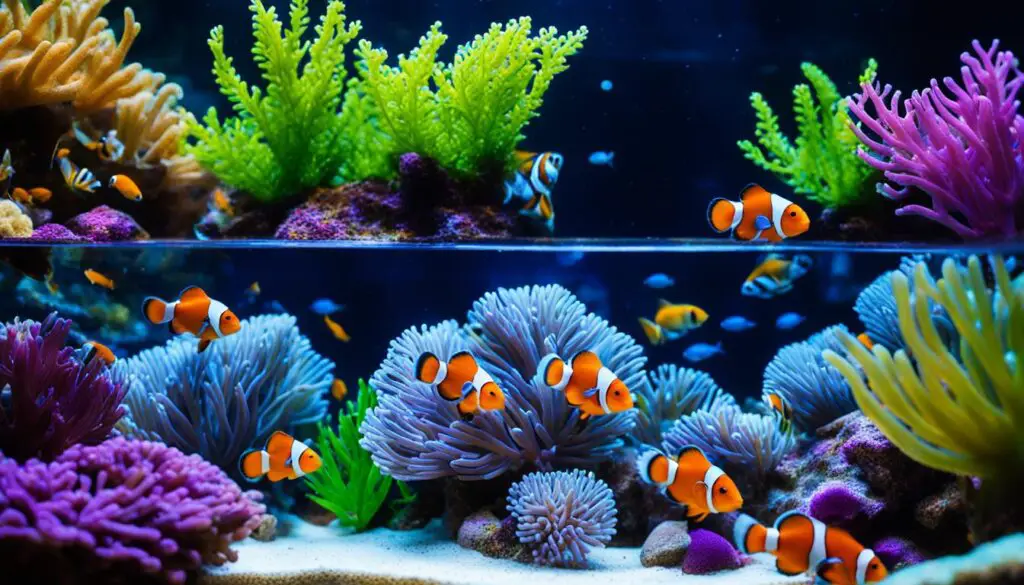Can Octopus Bite
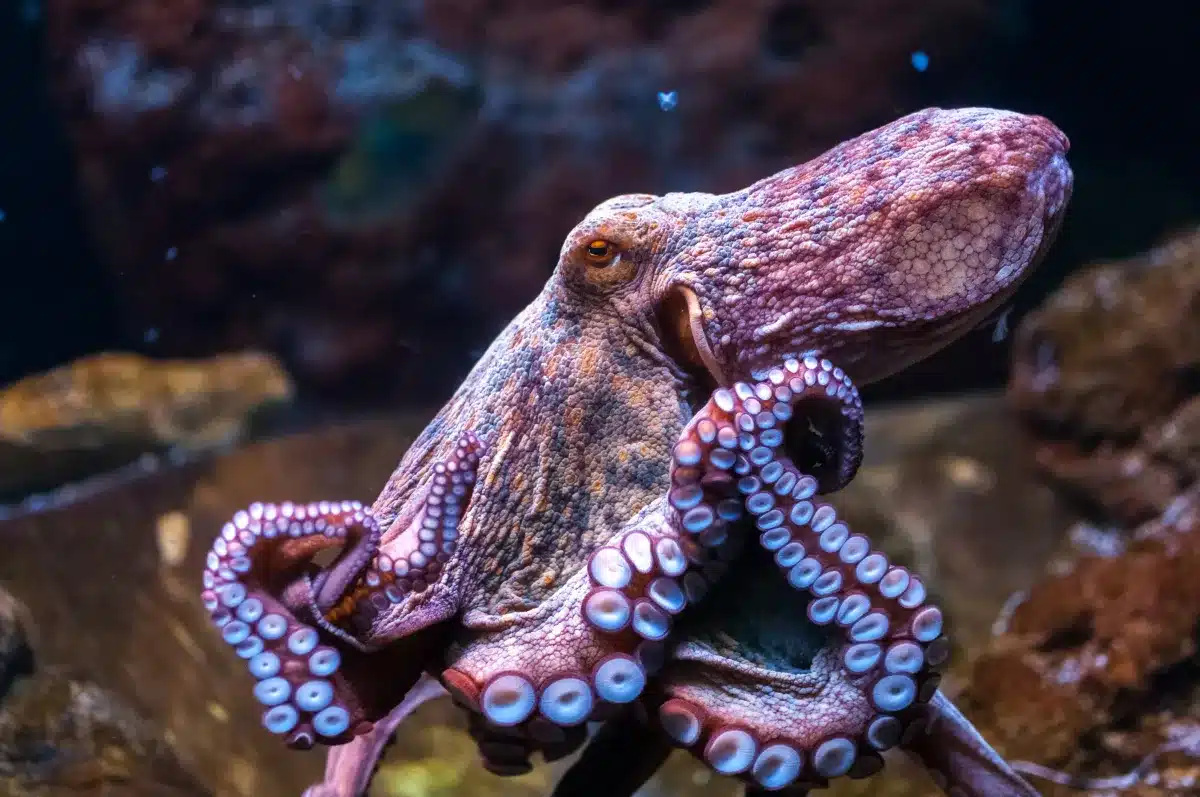
Introduction
Can Octopus Bite: Octopuses, those enigmatic and highly intelligent cephalopods of the sea, have long captured the fascination of scientists and curious minds alike. Yet, beyond their mesmerizing displays of color-changing camouflage and remarkable problem-solving abilities.
To embark on this exploration of octopus biting behavior, we delve into the intricate world of these aquatic creatures. Octopuses are known for their flexible bodies, multiple arms adorned with suction cups, and an astonishing capacity to adapt to their surroundings. However, lurking within their arsenal of survival mechanisms is a lesser-known feature—their beaks.
The beak, a hard, parrot-like structure, serves as the mouthpiece of the octopus. Though octopuses lack jaws, their beaks are formidable tools that can deliver a powerful bite. While octopus bites are not a regular occurrence, they occur in certain situations, typically when the animal feels threatened or provoked.
As we journey deeper into the realm of octopus behavior, we’ll uncover the circumstances under which these creatures might resort to biting, the mechanisms behind their bites, and the potential consequences for both octopuses and the curious individuals who encounter them in the wild.
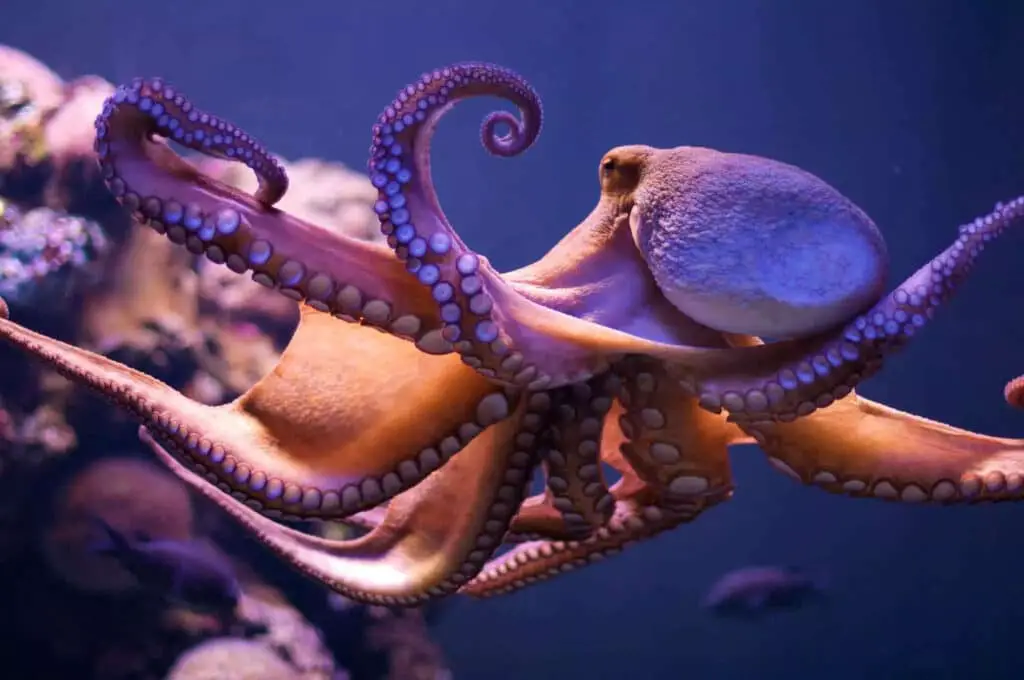
Can an octopus hurt you?
Octopuses are curious creatures and generally not aggressive toward people. But they will defend themselves if provoked and are capable of causing serious injury — as Bisceglia found out the hard way. “Wild animals are unpredictable and should be respected,” Trautwein said.
The answer largely depends on the specific circumstances and the species of octopus encountered. Octopuses are generally not aggressive toward humans and prefer to use their remarkable camouflaging abilities and stealth to avoid potential threats. However, there are situations where octopuses can potentially pose a risk.
One primary concern is the bite of an octopus. While not typically aggressive, octopuses may bite if they feel threatened or cornered. Some octopus species possess a beak that is sharp and powerful enough to break the skin, potentially causing injury or pain. Larger species, like the giant Pacific octopus, have more substantial beaks, making their bites potentially more impactful.
Venomous octopuses, such as the blue-ringed octopus, present a more significant threat. Their venom can be potent and, in some cases, deadly to humans if not treated promptly. Encountering such species in the wild should be approached with extreme caution.
In general, it’s crucial to treat octopuses with respect and observe them from a safe distance in their natural habitat. While the odds of being hurt by an octopus are relatively low, understanding their behaviors and potential risks is essential for ensuring both human safety and the well-being of these remarkable creatures.
Can an octopus bite your hand?
Octopuses can bite humans, but they probably won’t unless they don’t have another choice. The best course of action is not to fear octopuses because they have the ability to bite but to be aware that these wild animals can and will defend themselves, so it’s best to respect them and their space.
While octopuses are not naturally aggressive towards humans, they have powerful beaks that can potentially inflict a painful bite if they feel threatened or provoked. These beaks are hard, parrot-like structures designed for breaking down the shells of their prey, and they can certainly break the skin if they come into contact with a human hand.
Octopuses typically use their beaks as a last resort for defense when they cannot escape from a perceived threat through other means, such as camouflaging or jetting away using their siphon. Encounters with octopuses are generally peaceful, as they tend to be more curious and cautious than aggressive.
However, it’s important to exercise caution and respect when interacting with any wild animal, including octopuses. Approaching them slowly and gently, keeping a safe distance, and avoiding sudden movements can help minimize the risk of a bite.
In captivity, such as in aquariums, octopuses may become more accustomed to human presence and less likely to bite, but it’s crucial to follow the guidelines provided by experts to ensure both the safety of the animal and any individuals handling or observing them.
Can octopus attack humans?
A blue-ringed octopus is one of the most dangerous animals in the ocean. Its bite can be fatal to humans. However, very few people have died from a blue-ringed octopus bite. These octopuses are not aggressive and tend to keep to themselves unless they are attacked.
Octopuses are not typically known for attacking humans. In fact, most octopus species are quite reclusive and tend to avoid confrontations whenever possible. They are intelligent creatures with a range of sophisticated defensive mechanisms that they employ before resorting to aggression.
When octopuses feel threatened or cornered, they may exhibit defensive behaviors, which can include trying to escape, jetting away using their siphon, ejecting ink to create a smokescreen, or even camouflaging themselves to blend into their surroundings. These tactics are usually sufficient to deter potential threats.
However, in rare instances, if an octopus perceives an immediate threat to its safety and cannot escape or hide, it may resort to aggression as a last line of defense. Octopuses have a hard, parrot-like beak that can deliver a powerful bite. While these bites can be painful and break the skin, they are uncommon and typically occur in situations where the octopus feels exceptionally threatened.
What happens if octopus bite me?
The octopi’s salivary glands produce the venom, and the bacteria gets dispersed through their beak. TTX can paralyze a human in minutes. Due to this paralysis, your body wouldn’t be able to get enough oxygen, and death from a blue-ringed octopus would occur.
If an octopus bites you, it’s essential to take the situation seriously and seek medical attention promptly. While octopus bites are not common and most octopuses are not venomous, there are potential risks associated with their bites, such as infection or injury. Here’s what can happen if an octopus bites you:
- Pain and Bleeding: Octopuses have sharp beaks designed to break through the shells of their prey, so a bite can be painful and may cause bleeding. The extent of pain and bleeding can vary depending on the size and species of the octopus.
- Infection Risk: Any puncture wound, including those from an octopus bite, carries a risk of infection. Octopus mouths can harbor bacteria from the environment or their prey, increasing the chance of infection. Thoroughly clean the wound with soap and water and seek medical attention to assess the need for antibiotics or a tetanus shot.
- Allergic Reactions: In rare cases, individuals may have allergic reactions to octopus saliva or the foreign material introduced by the bite. Symptoms could include swelling, redness, itching, or difficulty breathing, requiring immediate medical care.
- Venomous Octopuses: Some octopus species, like the blue-ringed octopus, are venomous and have bites that can be life-threatening. Symptoms of a venomous octopus bite can include paralysis, numbness, difficulty breathing, and muscle weakness. Immediate medical attention and anti-venom may be necessary.
While octopus bites are uncommon and not usually aggressive in nature, they should be treated seriously. Promptly clean the wound, monitor for any signs of infection or allergic reactions, and seek medical care, especially if dealing with a potentially venomous species.
How strong is an octopus bite?
The toxin in the saliva paralyzes the prey while the blue-ringed octopus eats it. The TTX that a blue-ringed octopus injects is so deadly that 1 milligram of it can kill a human. It’s one of the most potent toxins on earth, and there is no antidote.
An octopus bite can be surprisingly strong and potentially quite powerful, considering the creature’s size and anatomy. Octopuses possess a hard, parrot-like beak that is designed to crush the shells of their prey, such as crustaceans and mollusks. This beak is made of a tough protein called chitin, reinforced with calcium carbonate, making it sharp and robust.
The strength of an octopus bite can vary depending on the species, size, and individual octopus. Larger octopuses tend to have more substantial beaks and, therefore, the potential for a more forceful bite. However, it’s important to note that octopuses are not naturally aggressive toward humans and typically reserve their biting behavior as a last resort in self-defense.
The force exerted by an octopus bite is usually sufficient to break the skin and may cause pain and bleeding. In some cases, particularly with larger octopuses, the bite could potentially result in more significant injury. It’s crucial to approach octopuses with caution and respect in their natural habitat to minimize the risk of provoking them to bite.
How do octopuses bite?
Octopuses deliver venomous bites with their sharp beaks. Octopuses do not have teeth, yet they bite. Yes, you read that right. In place of teeth, these sea creatures have very sharp beaks that are capable of delivering venomous bites and breaking open clams and lobster shells.
Octopuses use a specialized structure called a beak to bite. This beak, located at the center of their arms where they meet, is a hard, parrot-like structure that serves as their primary tool for capturing and consuming prey. Here’s how octopuses bite:
- Locating Prey: Octopuses have a highly developed sense of touch, and they use their sensitive arms to explore their surroundings and search for potential prey. When they identify a suitable target, they move in for the capture.
- Grasping and Biting: The octopus extends its arms and uses its powerful suction cups to secure a firm grip on its prey. Once firmly held, the octopus brings its beak into action.
- Crushing with the Beak: The octopus’s beak is incredibly strong and sharp. It is designed to puncture and crush the shells of crustaceans and mollusks, making it capable of inflicting damage on prey. The beak is closed with considerable force, effectively breaking down the prey’s defenses.
- Consuming Prey: After delivering a successful bite, the octopus can use its beak to tear apart and consume its prey, starting the digestion process. Any leftover hard or inedible parts are typically regurgitated.
While octopuses use their beaks primarily for hunting and feeding, they can also employ them defensively if they perceive a threat. In such cases, they may deliver a bite to deter the potential danger.
Do all octopus species have the same biting capabilities?
Octopuses, members of the cephalopod family, are renowned for their remarkable adaptability and unique abilities. While many octopus species share common characteristics, their biting capabilities can vary significantly. The power and efficiency of an octopus’s bite are closely tied to its size, diet, and habitat.
Smaller octopus species typically possess less potent biting capabilities, as their primary prey consists of smaller animals like crabs and mollusks. They rely on their sharp beaks to puncture the shells of their prey, injecting toxins to immobilize or kill them before consumption.
Larger octopus species, on the other hand, can exhibit more formidable biting abilities. The giant Pacific octopus, for instance, can deliver a powerful bite with its robust beak, enabling it to tackle larger prey, such as fish and even other cephalopods.
Ultimately, the biting capabilities of octopuses are not uniform across all species. They have evolved diverse feeding strategies and adaptations to suit their specific ecological niches. Some rely on cunning and precision, while others leverage brute force. This diversity in biting capabilities showcases the incredible adaptability and complexity of these enigmatic marine creatures.
Are octopus bites common?
Octopus bites on humans are relatively uncommon. These intelligent and usually shy marine creatures do not typically pose a threat to people unless provoked or cornered. Octopuses primarily use their beaks, which are strong and sharp, for capturing and consuming prey in their natural habitat.
Instances of octopus bites on humans often occur in situations where individuals handle octopuses without proper care or respect for the animal’s space. If an octopus feels threatened, it may respond defensively by biting. Additionally, some octopuses, like the blue-ringed octopus, possess venomous bites that can be dangerous to humans. However, encounters with such venomous species are rare, and bites are even rarer.
Divers, researchers, and aquarium staff who work closely with octopuses are more likely to experience bites, but these incidents are still infrequent. Safety precautions and understanding octopus behavior can significantly reduce the risk of bites in such situations.
In general, octopus bites on humans are not a common occurrence, and most people can safely admire these fascinating creatures in their natural habitat or at aquariums without any cause for concern. Respecting their space and natural behavior is key to ensuring peaceful coexistence with these remarkable marine animals.
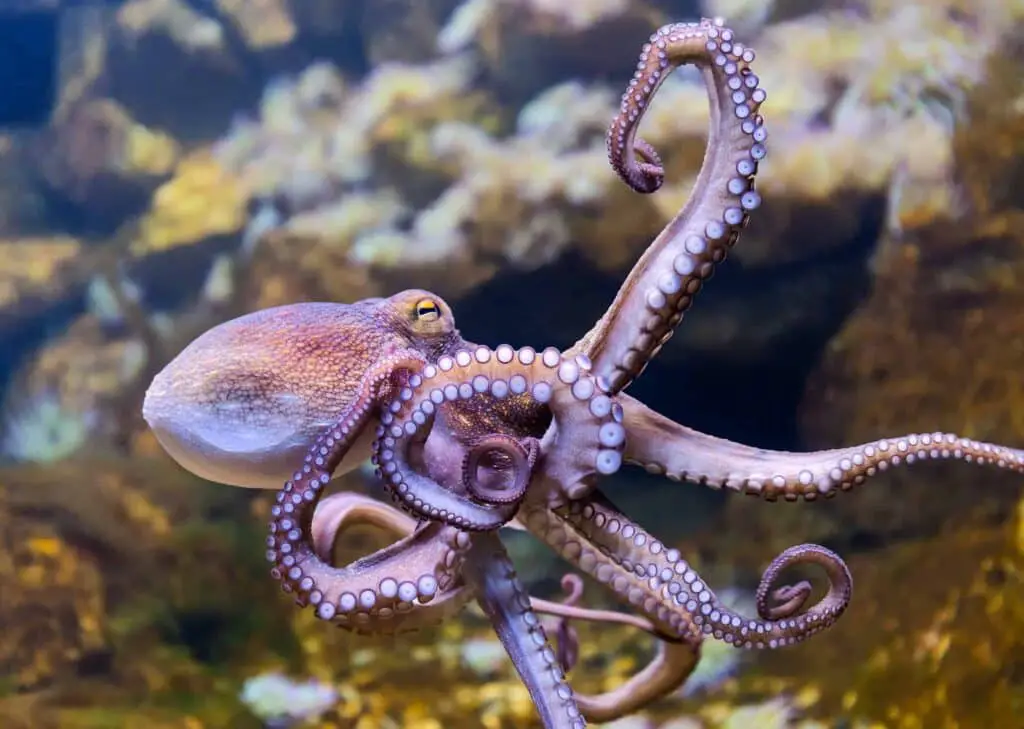
Conclusion
Our exploration into the question “Can Octopus Bite?” has shed light on a fascinating aspect of octopus behavior. These remarkable creatures, known for their intelligence and adaptability, possess a formidable beak that allows them to bite when necessary. While octopus bites are not commonplace and typically occur as a defense mechanism, they serve as a reminder of the diverse and complex strategies that marine life employs for survival.
Our journey has also highlighted the importance of respecting these creatures in their natural habitat. Octopuses, like all wildlife, deserve our caution and admiration from a respectful distance. Understanding their behaviors, including the potential for biting, can help us coexist harmoniously with these intelligent cephalopods.
As we continue to explore the mysteries of the ocean and its inhabitants, the octopus remains a symbol of the awe-inspiring diversity of life on our planet. Their biting behavior, while intriguing, is just one of many facets that make them a subject of wonder and scientific inquiry. It is through such inquiries that we not only learn about the natural world but also find inspiration to protect it for generations to come.

